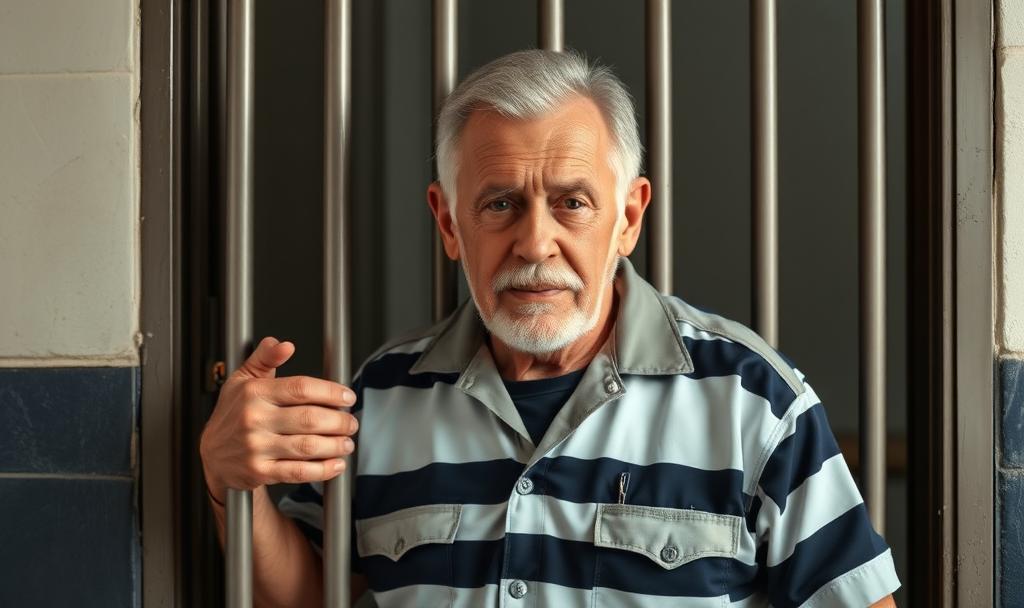Told by: Marcus Ellis.
Interviewed by: Rachel Dunley, Journalist for Fact After Fact Magazine.
The morning I handed in my resignation letter, I felt like I had cracked the code to life.
I wasn’t angry. I wasn’t scared. I was smiling. For fifteen years, I’d been an operations manager at a logistics company—good salary, solid benefits, soul-sucking predictability. I’d spent too many mornings staring out the breakroom window, coffee in hand, wondering if this was really all life had to offer.
Then I discovered real estate YouTube.
You know the ones: clean-cut guys in Teslas telling you how they made $50K a month with no experience. “Passive income,” they promised. “Financial freedom,” they whispered through my screen. I watched until 3 a.m. some nights. The math seemed irrefutable. Buy five rental properties. Let tenants cover the mortgages. Retire early. Travel the world.
By the end of the year, I’d cashed out my 401(k), taken a home equity loan on my paid-off townhouse, and quit my job.
I thought I was buying a future.
Instead, I bought a nightmare.
Chapter 1: The First Domino Falls.
My first property was a duplex in Dayton, Ohio. $185,000. “Turnkey,” they said. Fresh paint, new roof, leased tenants. The realtor sent me pictures that looked like an HGTV success story. I bought it sight unseen.
Big mistake.
The moment I arrived, I knew something was wrong. The air smelled like mildew and despair. The so-called “new roof” sagged ominously, and the backyard was overgrown with waist-high weeds. One tenant was already months behind on rent, and the other threatened to sue me for ignoring repairs—repairs I didn’t even know were needed.
But I told myself: It’s just a rocky start.
I bought three more properties over the next six months. Each one came with more surprises—leaky pipes, foundation issues, nightmare tenants, surprise tax liens. I tried to keep up. I learned how to snake a drain, replace drywall, even patch a sewer line after a tenant flushed diapers down the toilet. My hands were always bleeding, my savings always draining.
Chapter 2: The Month I Broke.
It was July, the hottest summer on record. My fourth property had just been burglarized. They took the copper piping—again. I was out $12,000 for the second time in two months.
That same week, a tenant in my duplex called to say the A/C was broken. The entire unit was 92 degrees. I drove six hours that night to drop off a window unit just so they wouldn’t report me to the housing authority.
When I got back home, my credit card was declined at a gas station.
I sat in my car and stared at the pump, blinking at the screen that said “Transaction Failed.” I had $14.92 in my bank account.
I had three mortgages due. Two credit cards maxed out. No reserves. And I hadn’t collected full rent in four months.
I laid my head on the steering wheel and sobbed.
Chapter 3: Selling Sentiment.
By August, I started selling anything of value.
First went my Apple Watch, then my MacBook, then my couch. I listed my old record collection on Facebook Marketplace, where a guy named Benny lowballed me on a pristine Beatles set. I took the offer. I needed groceries.
Next came my townhouse.
It was the hardest decision I’d ever made. It wasn’t just my home—it was my sanctuary. I’d bought it in my early thirties, painted every room myself, planted herbs in the tiny kitchen garden. I even had a vintage clawfoot tub I found at a salvage yard.
Selling it felt like amputating a part of myself.
But the equity was all I had left.
Chapter 4: Bankruptcy & Shame.
I filed for Chapter 13 bankruptcy in October. I had to. The collectors were relentless—rude voicemails, threatening letters, emails that made me physically ill to open.
I couldn’t sleep. My anxiety gave me acid reflux so bad I’d wake up choking. My doctor prescribed pills I couldn’t afford to refill.
I went to job interviews with gaps in my resume and the heavy shame of someone who’d “failed” at self-employment. One interviewer—a guy ten years younger than me—asked if I’d “learned my lesson” about chasing online gurus.
I smiled and nodded. Inside, I was burning with humiliation.
Chapter 5: The Craziest Idea That Worked.
With nothing left to lose, I did something I never imagined.
I created a TikTok account.
Not to dance. Not to sell anything. Just to tell the truth.
I made a video titled: “How I Went Bankrupt Trying to Become a Landlord.” It was just me, in a dimly lit kitchen, looking wrecked. I told the whole story in 60 seconds. I expected mockery.
Instead, it blew up.
I gained 75,000 followers in a month. Strangers messaged me saying they were about to make the same mistakes—and I’d saved them. Others offered me gigs: one guy hired me to consult on vetting properties. A real estate podcast invited me on. Then a financial literacy nonprofit paid me to speak at their conference.
I started rebuilding from there. Speaking gigs. YouTube. Even a freelance column warning about landlord traps. The irony wasn’t lost on me—my bankruptcy was now my business.
Chapter 6: Lessons Burned Into My Skin.
I learned more in that one year than in a decade of work.
Here’s what I’ll never forget:
- Passive income is a myth—especially in real estate.
No one tells you about eviction court, surprise repairs, or how much tenants will test your boundaries. If you’re not ready to work harder than you did at your 9-to-5, you’re not ready to be a landlord. - Always visit a property before buying.
No photo, no video, no “Google Street View” will replace standing in that space and seeing it with your own eyes. If it’s out of state and you can’t afford the visit—you can’t afford the investment. - Don’t trust a dream that only works in a bull market.
I invested like the housing market would never slow down. I never asked what would happen if tenants stopped paying or repairs piled up. Ask the hard questions before you sign anything.
Chapter 7: The New Me.
I rent now. That’s right—I don’t own any property. I don’t want to.
I freelance as a financial cautionary tale. I help people assess whether they’re ready to become landlords. And sometimes, I tell them: You’re not.
I’m rebuilding slowly, saving again, even dating someone who thinks my story is inspiring instead of embarrassing.
Will I ever invest in real estate again?
Maybe. But only after I’ve done deep due diligence, and only if I can afford to lose every penny.
Storyteller: Marcus Ellis.
Journalist/Interviewer: Rachel Dunley, Fact After Fact Magazine.
I am an accomplished author and journalist at Fact Finders Company . With a passion for research and a talent for writing, I have contributed to numerous non-fiction titles that explore a wide range of topics, from current events, politics and history to science and technology. My work has been widely praised for its accuracy, clarity, and engaging style. Nice Reading here at Fact After Fact.








